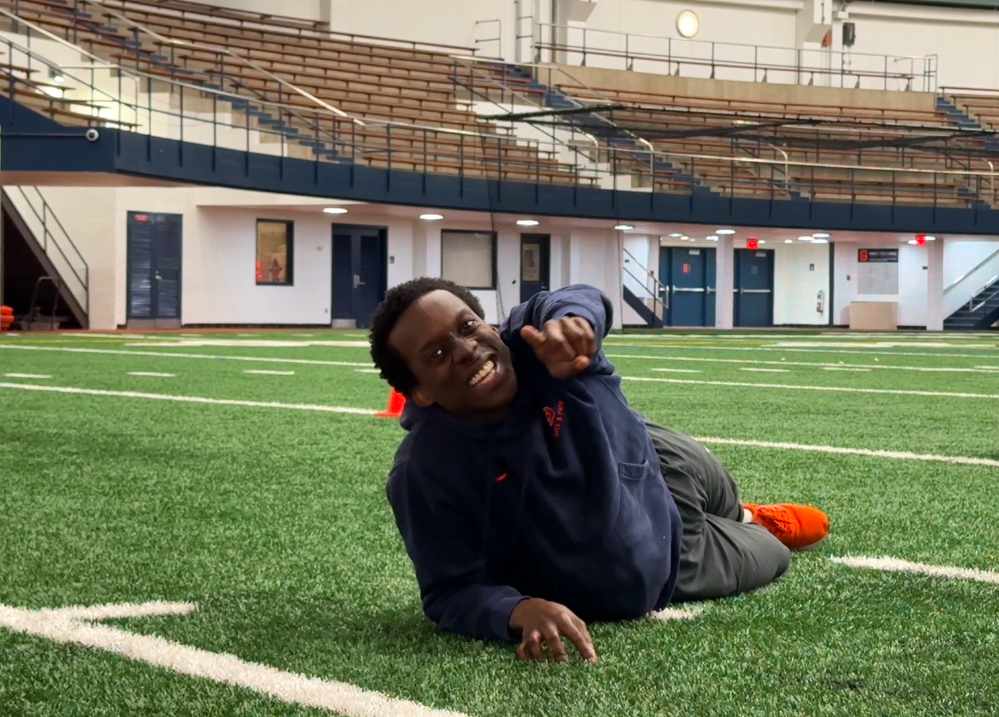
photo credits @ Xayvion Perkins
Syracuse, NY – As Syracuse University’s track and field team prepares for its first indoor meet this Saturday at Cornell University, excitement is high among athletes and fans alike. However, for many Division 1 athletes, the start of the season is also the beginning of a mental health battle, often hidden beneath the surface of competition.
Peyton Rollins, a Syracuse University hurdler, shared her perspective on the mental toll of competing in an individual sport like track and field. “I’m a lot harder on myself leading up to and in season,” Rollins said. “I think because track is such an individual sport, a lot of it… you know with soccer or other team sports, not to say you can blame other people, but it’s not 100 percent your fault. Whereas with track, it’s very individual, it’s very based on what you’re doing, and it’s all focused on you.”
Rollins’ sentiment reflects a broader trend among Division 1 athletes, whose mental health often declines during the season. According to the NCAA, student-athletes face additional pressures that can lead to heightened levels of anxiety and depression. These challenges are compounded by the high expectations placed on their performance.

photo credits @ Xayvion Perkins
Support Systems in Place, But Awareness Lags
Syracuse University provides a range of mental health resources, including access to sports therapists and counselors. Yet, athletes like hurdler Emmanuel Joseph believe the university could do more to ensure students know these resources exist. “I believe Syracuse provides a lot of opportunities to improve our mental health,” Joseph explained. “I think the issue is most students don’t know how to reach them… so a lot of kids don’t know who to talk to for mental health.”
Joseph emphasized the importance of proactive communication between students, coaches, and staff to bridge this gap. “Talk to your coaches, talk to the staff, and learn who is available for me,” he added.
Addressing the Bigger Picture
Research highlights that mental health challenges for student-athletes extend beyond Syracuse. Xayvion Perkins, an NCC News reporter, noted the unique pressures athletes face. “According to the NCAA, student-athletes’ mental health exponentially decreases when they are in season versus out of season,” Perkins reported. “They are no longer just a student; they are now facing a plethora of athletic pressures as well. If they feel like they’ve underperformed, it drastically increases the chances of depression, anxiety, and other mental health issues.”
Syracuse University has implemented programs to address these challenges, but athletes like Joseph believe there is still room for improvement. Rollins and Joseph’s experiences highlight the need for greater visibility of mental health resources, as well as ongoing support tailored to the unique pressures of collegiate athletics.
As the track and field season kicks off, Syracuse University’s athletes are not just preparing for physical competition but are also tackling the mental hurdles that come with being at the top of their sport. While the road ahead may be challenging, conversations like these shed light on the critical need for better mental health advocacy and awareness in collegiate athletics.
